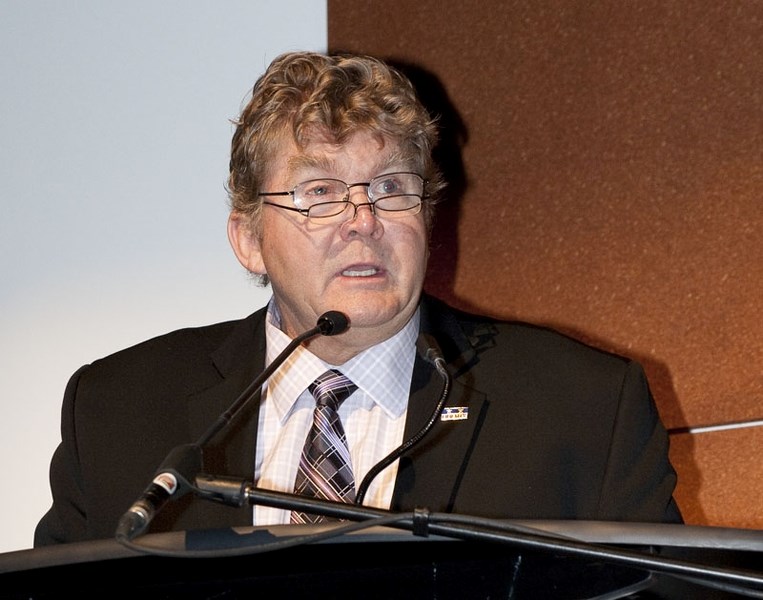A Sturgeon County mayor’s call for an end to regional and local planning in Alberta is “narrow-minded” and “pre-medieval,” says a prominent local scholar.
Mayor Don Rigney called for the elimination of public planning under the Municipal Government Act (MGA) during his annual Mayor’s Address Thursday morning. About 100 people gathered at the Morinville Community Cultural Centre to hear him speak.
“The state of Sturgeon right now is very, very promising,” Rigney said, with the North West upgrader set to bring wealth and prosperity to the entire region.
The province needs more development like that which is happening in Sturgeon County if it is to get through its current fiscal crunch, Rigney said. “We need more of this type of emphasis (on development) and this type of activity within communities, and I don’t think it’s possible under the MGA.”
The specific problem was public planning, he explained in an interview, which he argued discouraged councils from emphasizing business development. Research from groups such as the Cato Institute, a libertarian think-tank, also suggests that it drives up house prices.
“No wonder our costs have gone through the roof and all these upgraders have decided to go south,” he said. “We can’t bring in the labour or build them competitively.”
Planning by the public authority is a “feudal anachronism” that should be eliminated from the MGA, Rigney said.
“The best planning in the world is done by competitive forces,” he said, and the province experienced its greatest growth from 1996 to 2003 when it eliminated regional growth plans.
“Amend the MGA so that there’s no planning by the public authority,” he said, “regional or municipal.” He also called for new municipal governance models, such as ones that allow mayors to serve as chief administrative officers. He hoped the province’s current fiscal troubles would push it to make these changes.
When asked to comment on Rigney’s position on the MGA, Jim Lightbody, a professor of city politics at the University of Alberta who was not at Rigney’s talk, strongly disagreed with it, calling it “narrow-minded,” “short-term” and “pre-medieval.”
“Anyone who advocates such a view believes we all live in log cabins and chop wood,” he added.
Central planning is at the heart of local government, Lightbody said. “Planning is not a barrier to economic development. It is absolutely the reverse.”
A modern refinery is a very complex operation, he said, and companies don’t have time to mess with multiple layers of government. “They need a package presented to them by somebody with the authority to implement it, and you can’t do that without planning.”
You might get a cheaper home initially if you let someone build wherever they want, he continued, but the community will pay more if you don’t plan out the servicing beforehand. “Ultimately, the same taxpayer has to cover for that.” Regional planning can reduce servicing costs by encouraging density.
As for the 1993-2003 boom, Lightbody said that had far more to do with record-high oil prices than any regional plan.
Rigney has been making these pro-free-market arguments for about 10 years, said St. Albert Mayor Nolan Crouse, and he’s entitled to his opinions. Crouse personally took the stance that “proper prior planning prevents poor performance.”
Still, he said he was confused by why Rigney railed against central planning when his council was using it to plot out the Sturgeon Valley. “I do not know why it’s okay for Sturgeon County to do central planning for their county, yet it’s not okay for central planning to occur in a region.”
The Capital Region Board might not have a perfect plan, Crouse said, but both the province and academics recognize that it is a necessary one.
“I do not think the (MGA) is going to change to take away planning and make it a free-for-all in Alberta,” he said. “People need to know what their land is designated for.”




